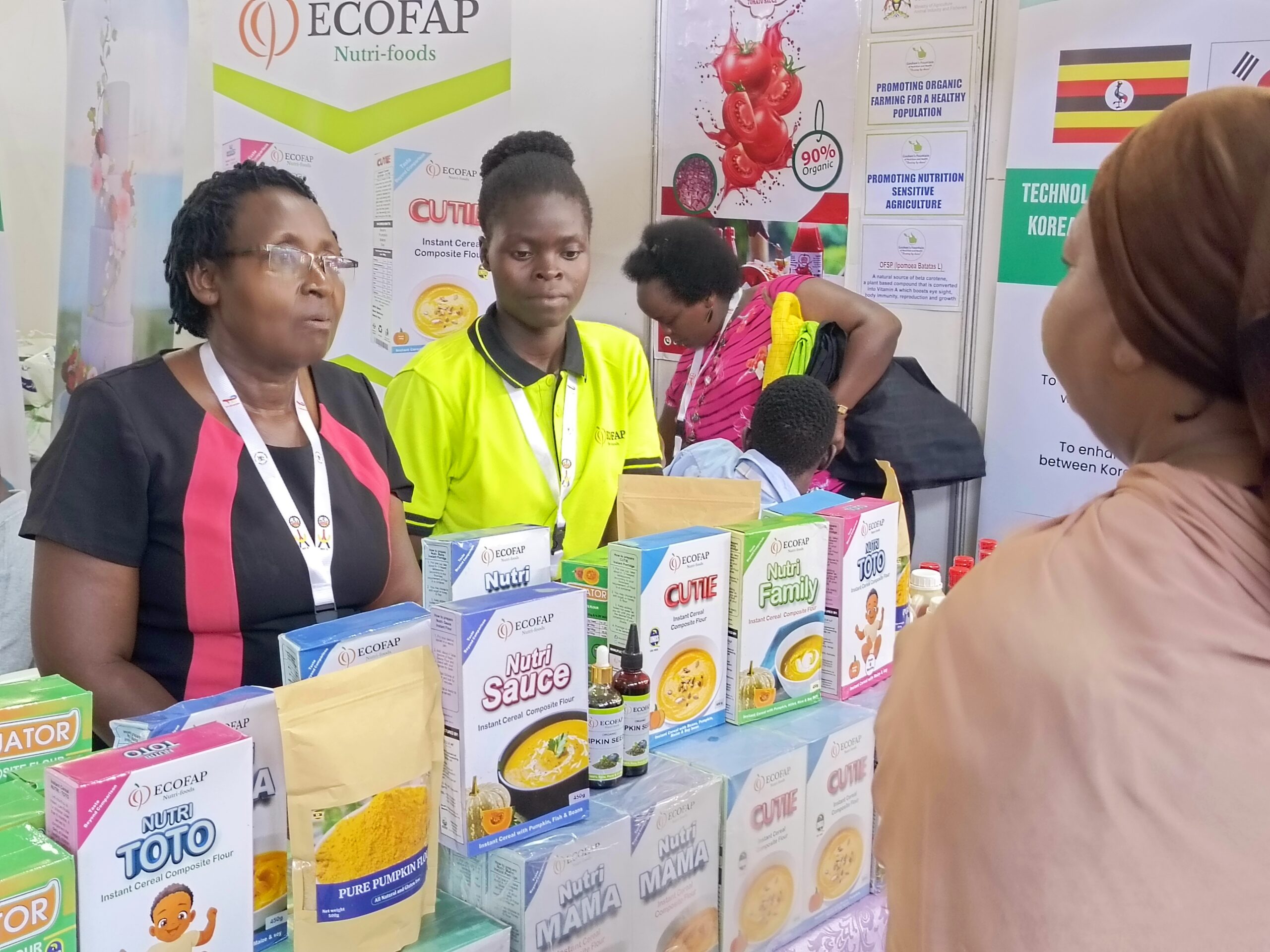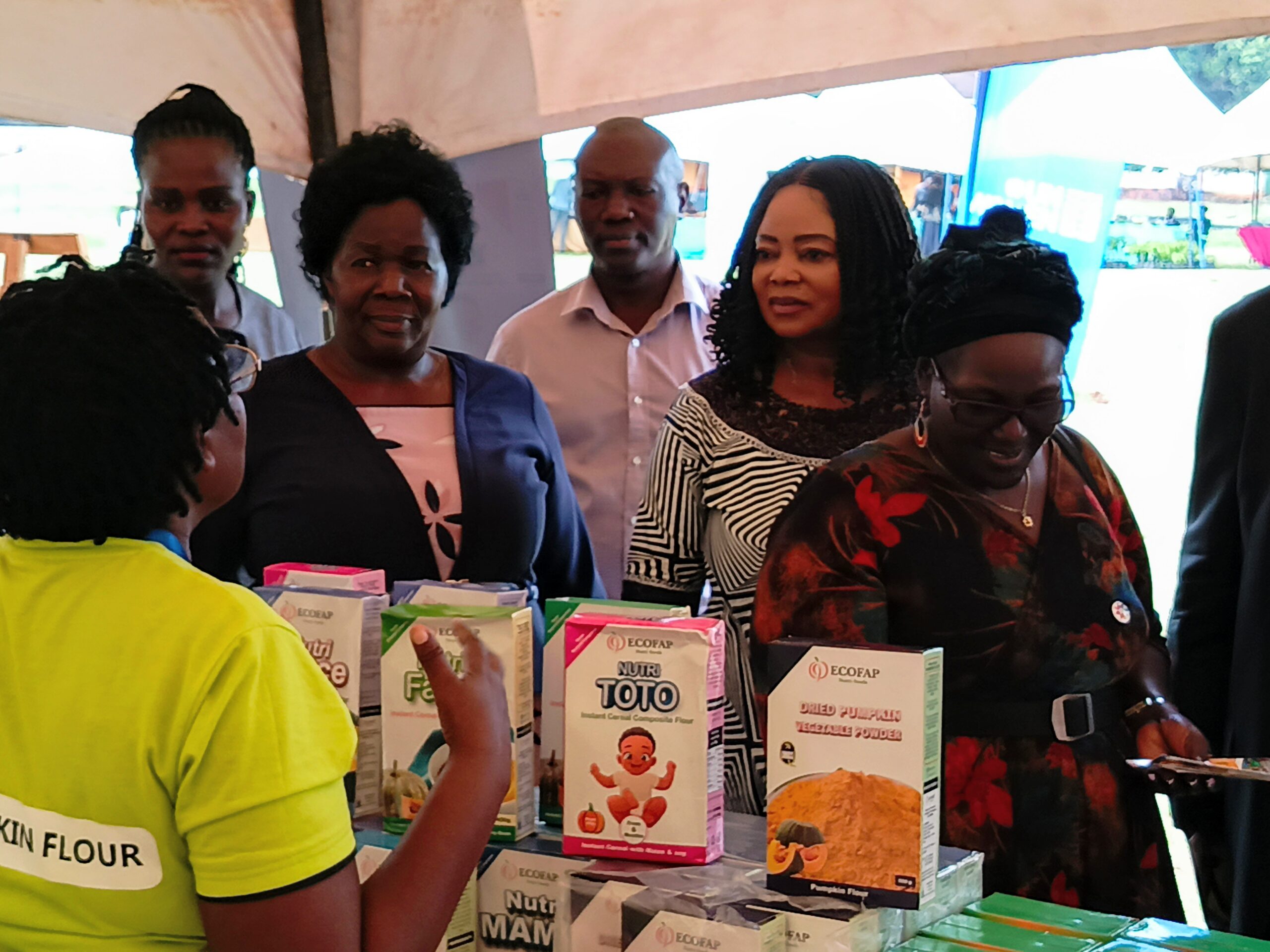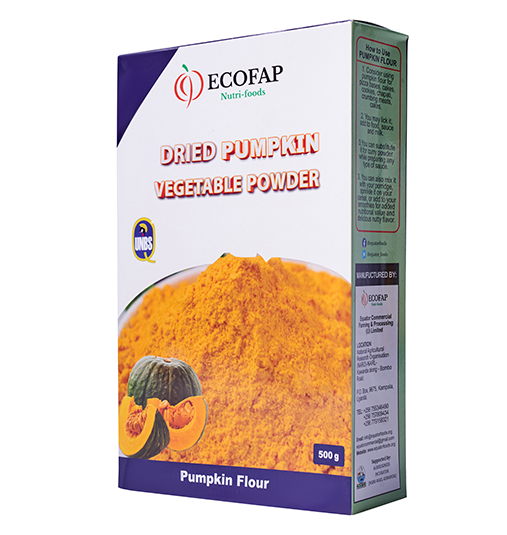


Our Company History
ECOFAP's impact extends beyond agriculture to encompass societal well-being.
ECOFAP, a Ugandan agribusiness company, has emerged as a beacon of innovation and sustainability in the agricultural sector. Specializing in organic farming and the processing of nutritious cereal, legume, and pumpkin foods, our journey began in 2014 as rural farmers in Gomba. Initially focusing on pumpkin cultivation, we faced challenges associated with price fluctuations and market instability. Realistic business plans for commercial production were consistently jeopardized by seasonal gluts and scarcity.
In response, we embarked on a strategic shift towards processing as a means of value addition. This decision marked a pivotal moment in our evolution, allowing us to mitigate market uncertainties and unlock new opportunities for growth and sustainability. By processing our produce, we not only added value to our crops but also enhanced their shelf life and marketability. Moreover, it enabled us to cater to the diverse dietary needs of vulnerable groups, including babies, pregnant and lactating mothers, geriatrics, and families.
Today, ECOFAP stands at the forefront of Uganda’s agricultural landscape, connecting with an expanding customer base and engaging with more outgrowers, particularly women and youth,including refugees who supply us with their produce. Our success is underpinned by a clear and compelling mission and vision
The Problem
According to the results derived from the Heckman Model, an alarming trend has emerged globally, indicating a significant rise in fast food consumption among up to 90% of the population. This surge in fast food intake is predominantly driven by factors such as taste and convenience, which have reshaped dietary habits and consumer behaviors. However, this convenience-oriented dietary shift has brought forth a grave concern—the prevalence of nutritional gaps, leading to widespread malnutrition, posing profound challenges to human welfare and impeding economic growth.
In Uganda, this predicament manifests in a particularly pressing manner, as individuals, especially working mothers, grapple with the dilemma of providing nutritionally valuable meals amid the constraints of time and convenience. The demands of modern life leave these individuals with limited time to prepare meals at home, prompting a reliance on fast, often categorized as "junk," foods for themselves and their children. This reliance on fast food, while seemingly addressing the immediate need for quick and accessible meals, is paradoxically accompanied by significant nutritional deficits, exacerbating the already prevalent issue of malnutrition in the country.
The problem is multifaceted, encompassing both the societal and individual levels. On a societal level, the pervasive availability and affordability of fast food options have contributed to a culture of convenience-driven consumption, overshadowing the importance of nutrition and dietary diversity. This cultural shift has ramifications beyond individual health, extending to broader economic and social implications, as malnutrition undermines human capital development and productivity, hindering sustainable development efforts.
At the individual level, the burden falls heavily on working mothers, who are tasked with balancing professional responsibilities with familial duties, often at the expense of their own well-being and that of their children. The time constraints imposed by work commitments leave these mothers with limited opportunities to prioritize meal preparation, leading to a reliance on fast food alternatives that are convenient but nutritionally inadequate. Consequently, this dietary pattern perpetuates a cycle of malnutrition, compromising the health and development of both mothers and their children.
Addressing this complex issue requires a multifaceted approach that addresses the root causes of fast food reliance while simultaneously promoting nutritional literacy and access to healthier alternatives. Interventions must encompass policy measures aimed at regulating the availability and marketing of fast food, alongside educational initiatives that empower individuals, particularly working mothers, with the knowledge and skills needed to make informed dietary choices. Furthermore, there is a need for investment in infrastructure and support systems that facilitate access to affordable and nutritious meal options, particularly in urban areas where the prevalence of fast food outlets is highest.
In summary, the proliferation of fast food consumption in Uganda, driven by factors such as taste and convenience, has resulted in a concerning prevalence of nutritional gaps and malnutrition, particularly among vulnerable populations such as working mothers and their children. Addressing this issue requires a comprehensive approach that addresses both the societal and individual drivers of fast food reliance, with a focus on promoting dietary diversity, nutritional literacy, and access to healthier food options. Failure to act risks perpetuating the cycle of malnutrition, undermining efforts towards sustainable development and human welfare in Uganda.








The Solution
In the realm of addressing nutritional gaps exacerbated by the rise of fast food consumption, ECOFAP emerges as a beacon of innovation and sustainability. As an agribusiness company specializing in organic farming and the processing of nutritious foods, ECOFAP offers a multifaceted solution to the pressing challenges faced by busy customers, particularly working mothers, who struggle to provide wholesome meals for their children amidst time constraints. Through the production of pre-cooked nutritious products derived from organically grown produce, ECOFAP not only provides a convenient alternative to fast food but also ensures that these products are free from harmful chemical additives, thus promoting optimal health and well-being.
ECOFAP's approach to addressing the nutritional needs of its customers is grounded in a commitment to sustainability, quality, and community empowerment. By harnessing the power of organic farming practices, the company cultivates a diverse range of crops, including cereals, legumes, and pumpkins, with meticulous attention to environmental stewardship and biodiversity conservation. These crops serve as the foundation for ECOFAP's product line, which encompasses pre-cooked nutritious options tailored to the dietary requirements of various demographics, including babies, pregnant and lactating mothers, geriatrics, and families.
One of the key innovations introduced by ECOFAP is the development of instant flour derived from organically grown produce. This innovative product offers busy customers the convenience of preparing nutritious meals in a fraction of the time typically required for traditional cooking methods. Unlike commercially available instant foods laden with chemical additives and preservatives, ECOFAP's instant flour is free from harmful substances, ensuring that consumers can enjoy wholesome, natural ingredients without compromising on taste or nutrition.
The versatility of ECOFAP's instant flour extends beyond traditional meal settings, offering customers the flexibility to enjoy nutritious foods anytime, anywhere. Whether at home, in the workplace, or on the go, busy individuals can incorporate ECOFAP's instant flour into their daily routines, ensuring that they and their families receive the essential nutrients needed for optimal health and vitality. This accessibility is particularly valuable for working mothers, who often juggle multiple responsibilities and face time constraints when it comes to meal preparation.
In addition to providing a convenient solution for busy customers, ECOFAP's emphasis on organic farming and sustainable practices has broader implications for public health and environmental sustainability. By eschewing chemical additives and pesticides in favor of natural farming methods, the company promotes soil health, biodiversity, and ecosystem resilience, safeguarding the long-term viability of agricultural systems. Furthermore, ECOFAP's commitment to community empowerment extends to its partnerships with smallholder farmer groups, particularly refugees, women and youth, who play a vital role in supplying the organically grown produce used in the production of instant flour and other nutritious products.
ECOFAP's holistic approach to addressing nutritional gaps exemplifies the company's dedication to promoting healthier lifestyles and making a positive impact on people's diets and lives. Through its innovative products, sustainable practices, and community-centered initiatives, ECOFAP is not only providing a solution to the challenges posed by fast food consumption but also paving the way for a healthier, more sustainable future for generations to come. As the company continues to grow and expand its reach, its contributions to improving public health and advancing sustainable agriculture will undoubtedly leave a lasting legacy in Uganda and beyond.

